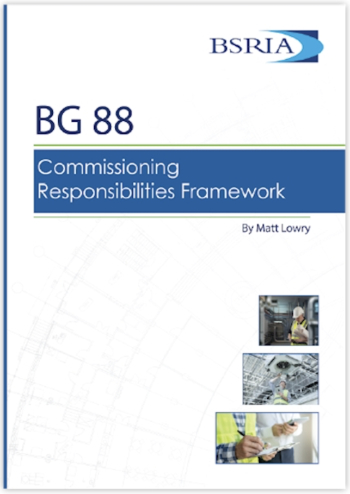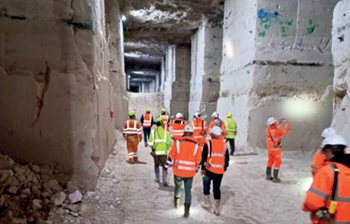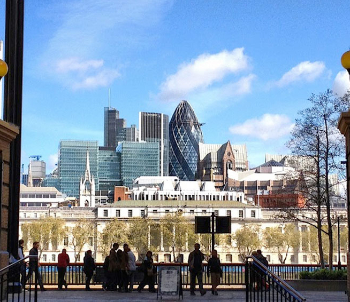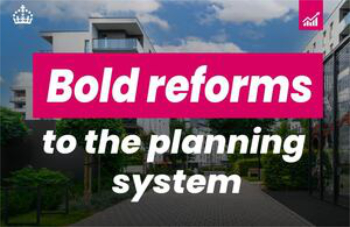Road improvement scheme consultation
[edit] Introduction
For road improvement schemes, public consultation is strictly an optional, non-statutory process aimed at informing stakeholders and the general public about the scheme and seeking their views. This is a best practice two-way process with success dependent on both the quality of the presentation of the proposals and the adequacy of feedback response.
The UK Government established a code of practice for consultation, from which the seven criteria offered are useful principles that could be used by the consulting authority for a road improvement scheme:
[edit] When to consult
Formal consultation should take place at a stage when there is scope to influence the policy outcome.
[edit] Duration of consultation exercises
Consultations should normally last for at least 12 weeks with consideration given to longer timescales where feasible and sensible.
[edit] Clarity of scope and impact
Consultation documents should be clear about the consultation process, what is being proposed, the scope to influence and the expected cost and benefits of the proposals.
[edit] Accessibility of consultation exercises
Consultation exercises should be designed to be accessible to, and clearly targeted at those people the exercise is intended to reach.
[edit] The burden of consultation
Keeping the burden of consultation to a minimum is essential if consultations are to be effective and if consultees' buy-in to the process is to be obtained.
[edit] Responsiveness of consultation exercises
Consultation responses should be analysed carefully and clear feedback should be provided to participants following the consultation
[edit] Capacity to consult
Officials running consultations should seek guidance in how to run an effective consultation exercise and share what they have learned from the experience
The Consultation Institute has also recommended six standards of engagement:
[edit] Keeping promises
Organisations should use their best endeavours to ensure that all implementation-related commitments made during a consultation be honoured, and that in the event that they cannot, an appropriate mechanism is created or used to discuss alternatives with key stakeholders.
[edit] Communicate progress
A lack of information fuels fear, uncertainty and doubt, so implementers must communicate clearly and honestly about all relevant aspects of post evaluation developments. Stakeholders should be able to identify easily who to contact for valid information about implementation.
[edit] Maintain contact
Organisers should compile and continuously update details of all individuals and groups affected by implementation; it should include those that took part in the previous consultation. They should offer them a mode of staying in contact with the project and being informed of developments.
[edit] Machinery for dialogue
There must be appropriate and adequate arrangements for implementers and affected stakeholders to identify and address issues of common interest with a view to minimising impacts and resolving problems. On occasions it may be desirable to ensure an independent element in the selected machinery.
[edit] Updated impacts
Organisations should monitor the impacts of implementation on a continuous basis, paying particular attention to individuals and groups falling within the equalities categories. Where impacts change, they have a responsibility to have 'due regard' of the consequences and take steps to mitigate wherever practicable.
[edit] Measure stakeholder perceptions
Implementers need to know what affected people and groups think about what's happening. Perception monitoring needs to be undertaken using techniques that are appropriate for the working environment, and ideally, implementers should publish transparent feedback on what has been said by those affected.
This article originally appeared as Road improvement scheme consultation: Good practice, published by the Institution of Civil Engineers on 1 April 2016. It was written by Adam Kirkup.
--The Institution of Civil Engineers
[edit] Related articles on Designing Buildings Wiki:
- Articles by ICE on Designing Buildings Wiki.
- Britain's historic paving.
- Conserving and Enhancing Country Lanes in the Surrey Hills AONB.
- Consultation process.
- DurabRoads.
- Ground conditions.
- Groundwater control in urban areas.
- Highway authority.
- Highway drainage.
- Kerbs.
- NEC contracts - road development and management schemes.
- Overview of the road development process.
- Pavement.
- Road construction.
- Road joints.
- Road traffic management.
- Technical consultation on planning.
- Traffic engineering.
- Types of road and street.
- Value management.
Featured articles and news
Commissioning Responsibilities Framework BG 88/2025
BSRIA guidance on establishing clear roles and responsibilities for commissioning tasks.
An architectural movement to love or hate.
Don’t take British stone for granted
It won’t survive on supplying the heritage sector alone.
The remarkable story of a Highland architect.
The Constructing Excellence Value Toolkit
Driving value-based decision making in construction.
Meet CIOB event in Northern Ireland
Inspiring the next generation of construction talent.
Reasons for using MVHR systems
6 reasons for a whole-house approach to ventilation.
Supplementary Planning Documents, a reminder
As used by the City of London to introduce a Retrofit first policy.
The what, how, why and when of deposit return schemes
Circular economy steps for plastic bottles and cans in England and Northern Ireland draws.
Join forces and share Building Safety knowledge in 2025
Why and how to contribute to the Building Safety Wiki.
Reporting on Payment Practices and Performance Regs
Approved amendment coming into effect 1 March 2025.
A new CIOB TIS on discharging CDM 2015 duties
Practical steps that can be undertaken in the Management of Contractors to discharge the relevant CDM 2015 duties.
Planning for homes by transport hubs
Next steps for infrastructure following the updated NPPF.
Access, history and Ty unnos.
The world’s first publicly funded civic park.
Exploring permitted development rights for change of use
Discussing lesser known classes M, N, P, PA and L.
CIOB Art of Building photo contest 2024 winners
Fresco School by Roman Robroek and Once Upon a Pass by Liam Man.

























